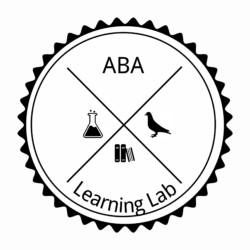Brian Kaminski, RBT, Graduate Student of Behavior Analysis
I can remember my first session as an ABA therapist like it was yesterday.
Minutes before my family was about to arrive, a million thoughts raced through my mind. “What was I getting myself into?” “Was I prepared enough?” “What if I don’t know what to do?”
I knew I loved working with children and individuals with special needs. There was no question there.
But this whole “ABA” business? The concept was new, the procedures were foreign, and the nerves I felt were very real.
“Hi, I’m Brian. I’ll be working with your son.” Thank goodness this parent couldn’t hear the thoughts rushing through my mind.
As I looked out across the play room, at the shy, timid child being entrusted into my care, I made a pact with myself then and there.
While it didn’t feel like I had all of the answers then (which I still don’t), I promised myself that nothing would stand in my way in seeking those answers out.
So I asked a lot of questions. I mean, a lot.
Those inquiries ignited a passion. That passion led me to like-minded individuals who have become friends and mentors.
Those relationships have become the framework of a career and calling that makes every “hard day” worth it, and pale in comparison to the overwhelming “good days” this field so generously affords.
I am now concluding the second year of my Master’s program in Behavior Analysis at Western Michigan University, far removed from that anxiety-filled first day.
But not that far removed.
I remember that feeling every time I meet a new staff member, fresh out of training and ready to embark on their own ABA journey. My message to them is always the same.
Be patient.
First, with your client. The initial challenges facing an individual with an ASD diagnosis can be very real. However, ABA teaches us that behaviors are learned responses. Replacement behaviors can be taught. Challenging behaviors can decrease over time. Life can and does get better.
But this takes dedication. And time.
Secondly, be patient with yourself. In my experience, some of the most promising behavior technicians don’t make it because they “flame out,” overwhelmed by the job demands and the feeling that they “aren’t doing enough.”
Again, my message is the same – be patient. The field of behavior analysis has been evolving over the past 60+ years, so the reality is that you will never have all of the answers revolving around the complexities of human behavior.
And that’s okay too.
What this field does demand, however, is an ongoing curiosity and desire to improve.
The last message I impart on new staff members is simple.
“If you want to ‘get better,’ you will.”
The evidence supporting ABA is too abundant and the behavior analysts supporting treatment are too passionate to see otherwise.
If you are humble enough to ask questions, receptive enough to receive feedback, and driven enough to apply the principles taught, you can and will make a meaningful impact that far surpasses anything you could imagine.
The ripple effect of your dedication will forever change the life trajectory of an individual, family, and community.
What more can you ask of a job?
The Center for Disease Control and Prevention (CDC) recently reported that the prevalence of autism spectrum disorder has increased to 1 in 59 children.
While this statistic beckons for answers in the realm of autism etiology, it also signifies an unprecedented need for early intervention services for individuals with ASD.
Applied Behavior Analysis (ABA) remains the empirically supported intervention for ASD, endorsed by the US Surgeon General, American Academy of Neurology, American Academy of Pediatricians, American Psychological Association, and Autism Society of America, among others.
So the question now is simple:
Who will answer the call to serve?
Working as a behavior technician has forever changed me, remarkably for the better.
Early intensive therapy (where at times you may work 30+ hours a week with a single client) has allowed me unprecedented access into the lives of some of the most dedicated families I have ever met.
I have heard a child speak their first words.
I have listened to a child read their first book.
I have met with parents marveling over their son or daughter’s progress, forging friendships and excelling in academics in ways they never foresaw.
ABA, built on the principles of learning, has been described in many ways. One of its foundational principles, positive reinforcement, I’ve heard described as “the accumulation of the ‘small kindnesses’ of life.”
It requires dedicated, passionate individuals with a desire to teach, mold, and serve.


I was just offered a position as a Behavior Technician, and I’m so nervous because I’m excited that I’m doing something that I’m passionate in, but I don’t want to fail at it. I’m currently in school obtaining my Bachelors in behavior analysis psychology. I’m ready for the test as being a Hero and servicing those who are in need.